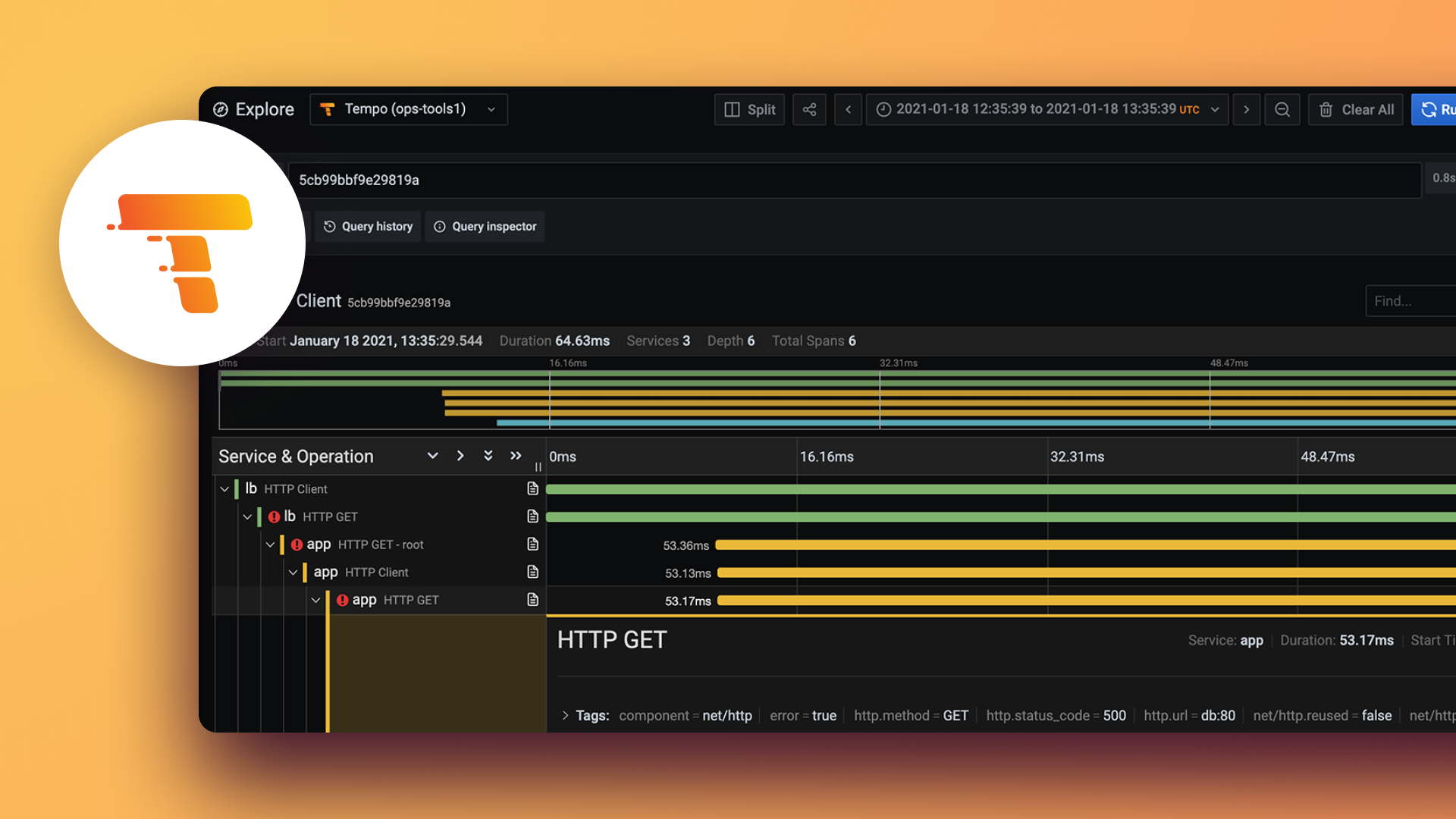启用尾部采样
您可以在必要或期望时使用尾部采样来降低采样百分比,例如为了运行时或出口流量相关的成本。概率采样策略易于实现,但也存在丢弃您以后可能需要的相关数据的风险。
尾部采样与 Grafana Alloy 配合使用。Alloy 配置文件使用 Alloy 配置语法 编写。
配置尾部采样
要开始使用尾部采样,请在您的配置文件中定义采样策略。
如果您使用 Alloy 的多实例部署,请添加负载均衡并指定查找设置中其他 Alloy 实例的解析机制。
要查看负载均衡的所有可用配置选项,请参阅 Alloy 组件参考。
Alloy 示例
Alloy 使用 otelcol.processor.tail_sampling 组件 进行尾部采样。
otelcol.receiver.otlp "default" {
http {}
grpc {}
output {
traces = [otelcol.processor.tail_sampling.policies.input]
}
}
// The Tail Sampling processor will use a set of policies to determine which received
// traces to keep and send to Tempo.
otelcol.processor.tail_sampling "policies" {
// Total wait time from the start of a trace before making a sampling decision.
// Note that smaller time periods can potentially cause a decision to be made
// before the end of a trace has occurred.
decision_wait = "30s"
// The following policies follow a logical OR pattern, meaning that if any of the
// policies match, the trace will be kept. For logical AND, you can use the `and`
// policy. Every span of a trace is examined by each policy in turn. A match will
// cause a short-circuit.
// This policy defines that traces that contain errors should be kept.
policy {
// The name of the policy can be used for logging purposes.
name = "sample-erroring-traces"
// The type must match the type of policy to be used, in this case examining
// the status code of every span in the trace.
type = "status_code"
// This block determines the error codes that should match in order to keep
// the trace, in this case the OpenTelemetry 'ERROR' code.
status_code {
status_codes = [ "ERROR" ]
}
}
// This policy defines that only traces that are longer than 200ms in total
// should be kept.
policy {
// The name of the policy can be used for logging purposes.
name = "sample-long-traces"
// The type must match the policy to be used, in this case the total latency
// of the trace.
type = "latency"
// This block determines the total length of the trace in milliseconds.
latency {
threshold_ms = 200
}
}
// The output block forwards the kept traces onto the batch processor, which
// will marshall them for exporting to the Grafana OTLP gateway.
output {
traces = [otelcol.exporter.otlp.default.input]
}
}
otelcol.exporter.otlp "default" {
client {
endpoint = env("OTLP_ENDPOINT")
}
}

